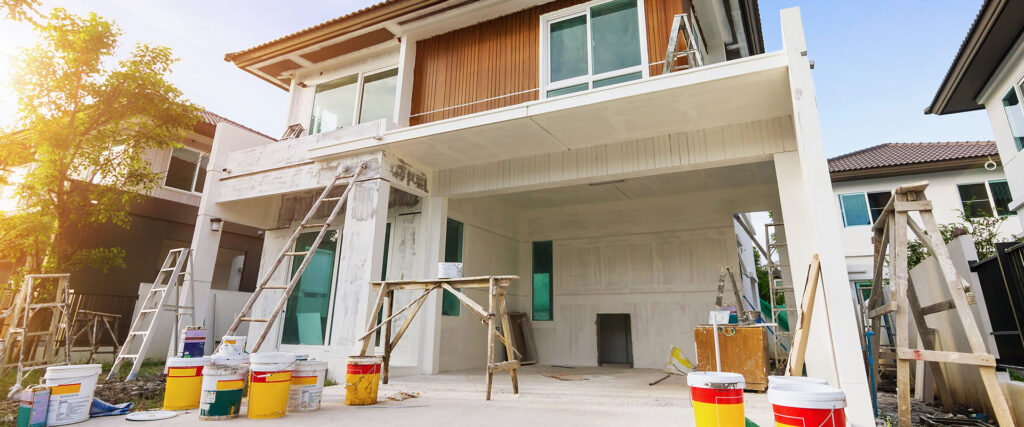Your client, anxious to sell, asks you for some expert advice on what they could do to make their home more attractive to the right buyers. Times are tough and budgets for renovations are tight – find out what the local property experts advise on what to do and what not to do.
One of the biggest mistakes sellers make is to over-invest on renovations to make sure their home sells. At the same time there isn’t a one size fits all. That’s why it is important that the seller must be able to come to an estate agent to get expert advice on how much to spend and on what – a new front door or a new coat of paint or maybe just some new taps.
Location is key – According to Adrian Goslett, regional director and CEO of RE/MAX Southern Africa, one of the most common mistakes sellers make, especially during a tough market, is to go ahead with expensive renovations that overprices the property within its suburb. “The reality is that property values are often capped according to the overall value of the suburb itself. If the most expensive sale in your suburb was R1 million, then you are unlikely to achieve a good return on investment by spending half a million on upgrades,” he explains.
Berry Everitt, CEO of Chas Everitt International property group says location should always be kept in mind when planning to renovate. “For instance, a modest home converted into a mansion will be difficult to sell at a high enough price to recoup expenses if the suburb as a whole usually only attracts middle-income,” he says.
Everitt’s advice is to inform the client of the current top values of homes in the area, and then compare these to the value of the home to be renovated. “The difference in value is the maximum sum that can safely be spent on renovations, although it might be prudent to spend even less than this,” he says. For example, if the market value of the home is R800 000, and top prices in the area are around R1m, the home owner should try to keep his budget for renovations at around R150 000 or less.
Keep it modest – Unless the client invested in a fixer-upper and is planning to flip the home for profit, pre-sale renovations should be kept to the essentials, says Goslett. Kitchens and bathroom updates will always add value but needn’t be elaborate (depending on how outdated they are, of course). “Sellers should choose fittings and features that fit the profile of their suburb. If you are situated in top-end neighbourhoods, then perhaps installing a bathtub with spa jets could be worthwhile. Otherwise, simply changing the tap on your tub might be enough to update the bathroom,” Goslett suggests.
Sellers should also avoid getting too creative with their renovations. “While it is advisable to renovate your home in a way that sets it apart from comparable homes in your suburb, sellers should bear in mind that taste varies from person to person. Sellers should avoid spending money on elaborate feature walls, customised handles or any other ornate features which minimise the property’s universal appeal,” says Goslett.
Energy-savers add value – Some high-end buyers are showing a lot of interest in homes with energy and water-saving features such as borehole water supply and solar panels. This is especially true in the Cape Peninsula according to Maryanne Coates from Jawitz Properties Noordhoek who says the area attracts buyers, also from Gauteng, keen on living in a way that’s less harmful to the environment and it will save them future municipal tariff increases. “They’re also likely to get a higher price if they sell. It’s a win-win solution that makes environmental sense, but also great property sense,” she adds.
Colour me beautiful – Colours are seasonal says Goslett and that’s why he tells sellers to avoid going overboard when painting in the trending palettes. “It would be better to stick to the more neutral paint colours for the walls and use the bolder shades on cushions, curtains and other removable items that will go with the seller into their next home,” suggets Goslett.
Get approvals first – Warn clients not to spend money on renovations without first acquiring the necessary planning approvals, electric and plumbing clearances. Their property will not pass the home inspection which will cause any sale you had lined up to fall through,” cautions Goslett. It is important that clients budget for this if they are planning to do any renovations he concludes.Use reputable contractors – Avoid that your client gets scammed by fly-by-night home improvement contractors. Everitt recommends that they use established companies and registered contractors that come recommended or whose previous work and refences can be checked. Initially their work might appear more expensive, but in the long run it is less because they try to do the work right from the start.
Count the cost – Everitt says many home renovators worry that they will run out of money. To avoid that from happening, his advice is that prospective home improvers budget for their project to cost at least 30% more than they originally estimated.
“They should also make sure that they have a proper contract (drawn up by their attorney if necessary) which stipulates how much they will pay at each stage of the job – and should never, ever be persuaded to part with their hard-earned money upfront,” he says.
Of course, it goes without saying that simply tidying up the yard, trimming the hedges and fixing everything that’s broken are unnegotiable if a homeowner is serious about making a sale. Happy selling!
You are welcome to share tips that work with us on editor@propertyprofessional.co.za.








